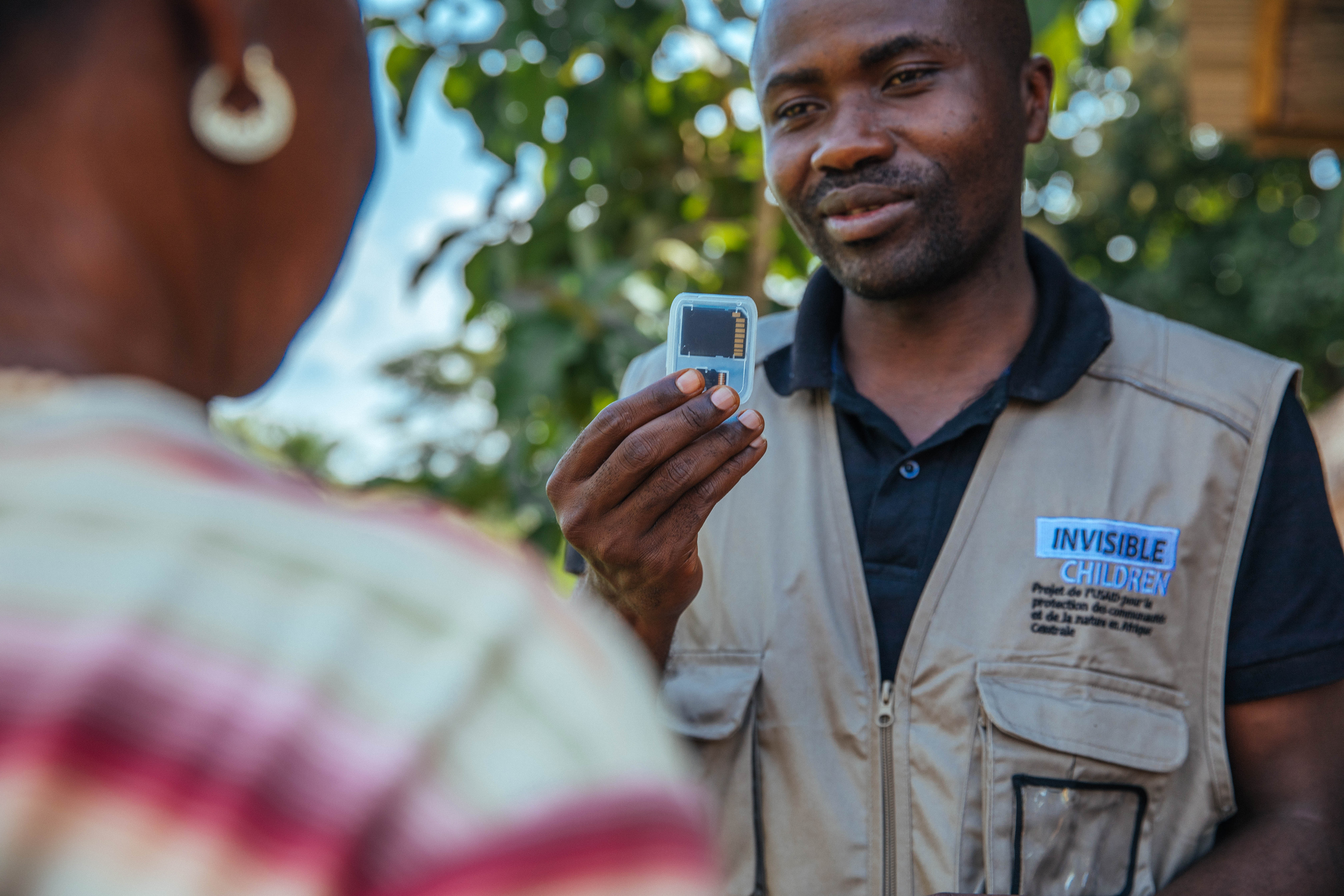“Recurring issues near Sam Ouandja often involve tensions between pastoralists traveling from South Sudan and Sudan during the dry season and destroying farmers’ fields with their cattle. This was the case in the nearby community of Yangou Wassa, where farmers requested that ex-Seleka factions and local authorities take retributive action against pastoralists in May 2019. These authorities referred them to the Sam Ouandja Peace Committee who then traveled to Yangou Wassa to conduct a large-scale sensitization campaign on social cohesion. Our main message was “We are all human beings; we can all communicate and cooperate despite past problems.” Along with community members, the Peace Committee created a strategy for future risk mitigation which involved the creation of a local committee to peacefully resolve disputes. Since this sensitization effort, there has only been one dispute in Yangou Wassa, which was peacefully resolved by the new committee.”
– Peace Committee member in Sam Ouandja, CAR, in July 2019

Cattle market in eastern CAR
Civilians living in the tri-border region of eastern Central African Republic (CAR), northeastern Democratic Republic of Congo (DRC), and southwestern South Sudan face a range of security threats each day, including armed group violence and intercommunal tensions that divide people along complex ethnic and religious identities. In some cases, intercommunal tensions are further strained by competition between pastoralists and farmers for land and resources that are increasingly limited due to climate change and other environmental changes. Competition for access to resources reinforces conflicts in the region, especially when intercommunal tensions are exacerbated by political and ethnic tensions stoked by politicians and armed groups.
Successful and sustainable responses to these tensions must be locally owned, engaging both local farming communities and migrant pastoralists. In eastern CAR, local Peace Committees have demonstrated some notable success in managing tensions and disputes between farmers and pastoralists utilizing techniques learned during Invisible Children conflict mediation training and adapted sensitization tools provided by Invisible Children.
For example, in the town of Sam Ouandja in Haute Kotto prefecture, the local Peace Committee traveled to the pastoralist camps of Sudanese herders who had crossed into CAR and engaged with the head of the camps, as well as members of the pastoralist groups. They advised them on the location of local transhumance corridors and advised them on how to seek mediation from local leaders and community heads if they became involved in any disputes. Female members of the Peace Committee, including a woman from the local pastoralist community, participated in these visits in order to engage with and build trust among the women in the pastoral groups.
Through its outreach with pastoralists communities, the Sam Ouandja Peace Committee has also facilitated dialogue between community members in nearby Yangou Wassa, CAR and Sudanese pastoralists who seasonally pass through the community. Historically, there were tensions between the groups due to damage that herds inflicted on crops. However, through sensitizations facilitated by the Peace Committee, the groups identified strategies to resolve disputes and mitigate conflicts, such as paying for damage to crops. Such efforts can help prevent minor disputes over resources from sparking more intensive armed group or intercommunal violence.
Across the border in southwestern South Sudan, local Peace Committees, trained in conflict management by IC’s local partner, InterChurch Committee of South Sudan (ICCSS), proactively respond to rumors, engage with pastoralist leaders, and prevent conflict. For instance, in May 2020, rumors of Lord’s Resistance Army (LRA) sightings began to spread in the South Sudan community of Basukangbi. The local Peace Committee determined that it was not the LRA but a group of pastoralists. Immediately, the Peace Committee informed the community, easing anxiety and reassuring members that there was no LRA threat in the area. The Peace Committee also took action to prevent intercommunal tensions and mitigate possible violence by engaging in dialogues with the pastoralist leaders, to ensure they moved their herds away from farms to avoid damage to local farmers’ crops. The Peace Committee also sensitized local youth not to loot the pastoralists.

Micro SD cards with pre-loaded sensitization messaging being distributed to local Peace Committee representatives.
Local Peace Committees have demonstrated innovation and invaluable insights in engaging with pastoral groups. In eastern CAR, the use of micro SD cards has organically emerged as popular mechanisms for the spread of music and videos, including among pastoralists operating in remote regions. Taking advantage of this, one Peace Committee in CAR recorded versions of Invisible Children peacebuilding sensitization messaging in Fulbe, the language spoken by many pastoralists, and distributed them via micro SD cards to pastoralists to ensure broader dissemination within their communities. Given the mobility of pastoralists and relations between pastoralists from the same ethnic groups, the dissemination of messaging in Fulbe on micro SD cards within pastoralist groups has the potential to be shared at a broader level, thanks to the innovative thinking of the Peace Committee.
Invisible Children is committed to building the capacity of local Peace Committees, to enable communities to continue to develop adaptive approaches to mitigate conflicts and ensuring livelihood resilience in central Africa. By continuing to work with local Peace Committees on innovative, locally-created strategies, Invisible Children continues to equip those at the center of solutions to conflict and climate change with the tools they need to ensure the safety and vitality of their communities.
Think people should hear about this?